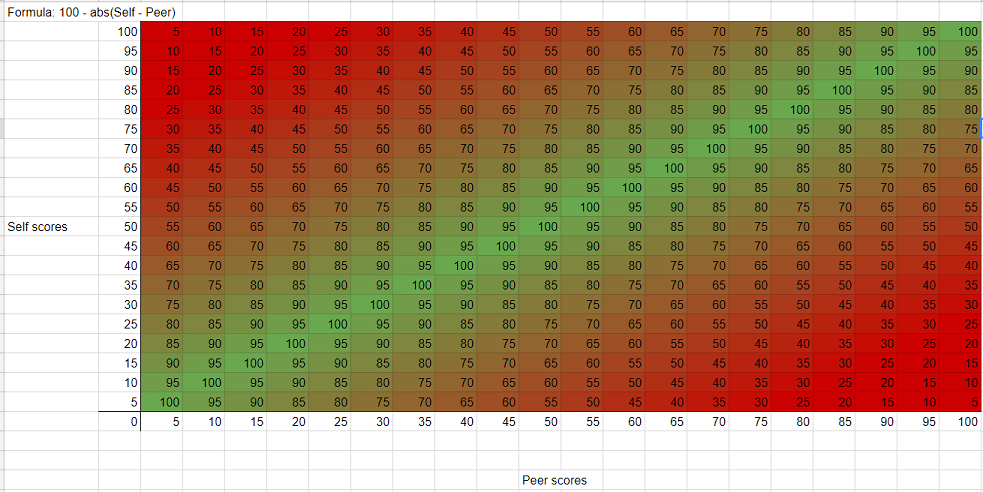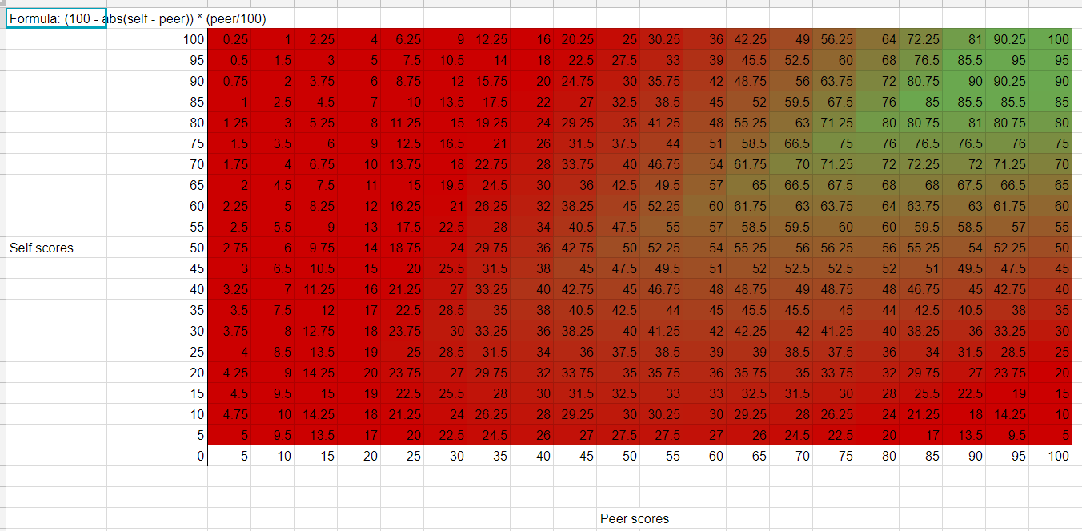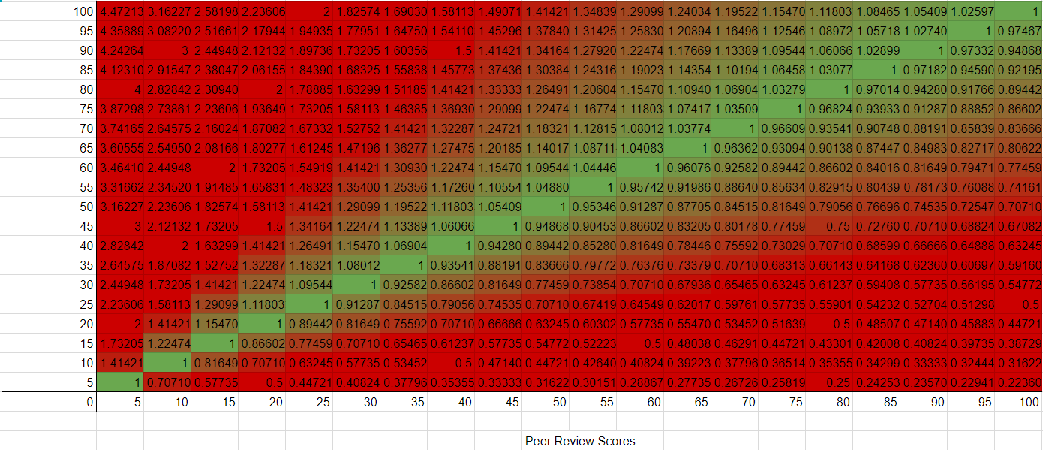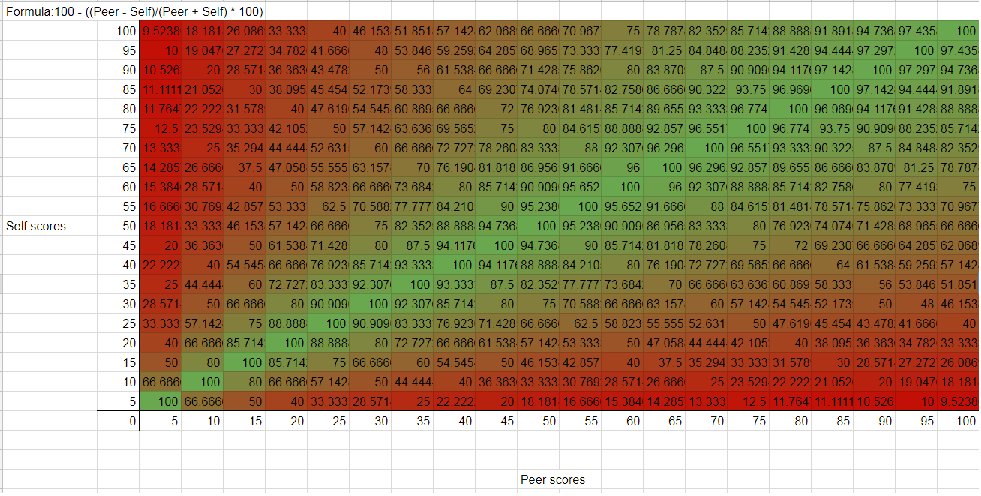CSC/ECE 517 Spring 2018- Project E1819: Improve self review, link self and peer review to derive grades
Introduction and Problem Statement
Expertiza has the ability to require self reviews on projects, however, these self review scores do not have much functionality. In the current system, self review scores are created and stored, but are not used afterwards. This project seeks to improve upon the self review system, and extend its functionality. The main points of this project are as follows:
- Display the self review scores in the "View Scores" page juxtaposed with peer review scores.
- Display the self review scores in the heat map of peer reviews, with some way to denote they are a different type of review.
- Create a method to calculate a linked score between self and peer reviews. The closer the self review is to the peer review, the greater the score. Display this score on the "View Scores" page.
- Ensure that users cannot view peer reviews until they complete their self review.
Planned Approach
- Remove ability to see peer reviews before submitting a self review
- Create/find a function to link peer and self review scores
- Implement function in a method that will be used when a self review is submitted
- Create the different displays for self reviews
Score Formulas
Several potential formulas to calculate the derived score between self and peer reviews were discussed.
A naive approach is to find the difference between the max score and the difference between self and peer reviews.




Testing
Test cases are as follows:
- Peer reviews cannot be viewed before a self review is completed.
- Peer reviews can be viewed immediately when self reviews are not required.
- The derived scores can be saved to the database.
- Self review scores are displayed with peer review scores
- Student can only see their own self review
Files Changed
Reference
Our repo link our pull request link